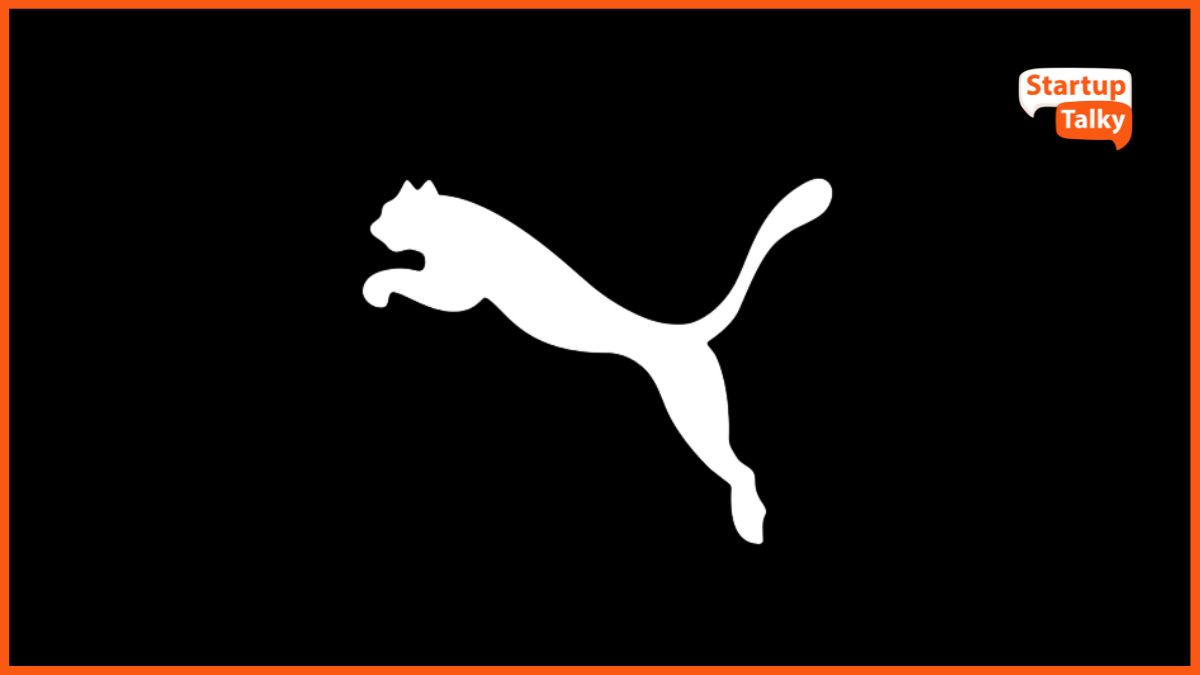PUMA Success Story: Rising to the Top of the Sportswear Industry
📄Company Profiles
Company Profile is an initiative by StartupTalky to publish verified information on different startups and organizations. The content in this post has been approved by PUMA.
Rudolf Dassler established PUMA in 1948, and it is currently the third-largest sportswear producer in the world. PUMA creates and markets sports and sports lifestyle merchandise, such as footwear, clothing, and accessories. PUMA is without a doubt the brand that consistently ranks among the top 5 options for sportswear enthusiasts. PUMA is a brand that we foresee continuing to be a player in the market for many years to come because of its extensive worldwide presence and hard-rocking impact.
The PUMA brand logo may be seen and recognized not only in a wide variety of celebrity footwear and clothes but also by commoners walking by. PUMA's strategy has always been to change with the times and never stand still.
Here's the success story of PUMA, which covers all about the company, the startup story and growth, its products, its competitors, its business and revenue model, and more.
PUMA - Company Highlights
| Company Name | PUMA SE |
|---|---|
| Headquarters | Herzogenaurach, Germany |
| Sector | Apparel, Footwear, Accessories |
| Founder | Rudolf Dassler |
| Founded | 1948 |
| Website | puma.com |
PUMA - About
PUMA - Industry
PUMA - Founder and Team
PUMA - Startup Story
PUMA - Mission and Vision
PUMA - Name, Tagline, and Logo
PUMA - Products
PUMA - Business and Revenue Model
PUMA - Sponsorships
PUMA - Challenges Faced
PUMA - Investments
PUMA - Acquisitions
PUMA - Competitors
PUMA - Future Plans
PUMA - About
The athletic goods and equipment company PUMA, designs, manufactures, and sells footwear, clothing, and accessories for men, women, and kids. The business markets goods under PUMA, Cobra Golf, and stitched brand names. Additionally, it grants licenses to several independent businesses so they may manufacture and distribute accessories, watches, and eyeglasses. Through company-owned and authorized retail locations, authorized online marketplaces, and wholesale, the business offers goods directly to customers.
Additionally, PUMA supports international national teams in several sports. It operates in America, Asia-Pacific, Europe, the Middle East, and Africa (EMEA). The company's headquarters are in Herzogenaurach, Bavaria, Germany.
Football, basketball, track and field, golf, motorsports, etc. are just a few of the sports that PUMA designs, manufactures, distributes, and advertises footwear, apparel, and accessories for.
PUMA - Industry
The market is expanding significantly as consumers become more drawn to the product's capacity to provide sweat-wicking, aeration, and improved physical activity. The product's increased use is attributed to its ability to protect against harsh weather, boost blood circulation, and avoid injuries. Because more individuals are participating in fitness activities, the consumption of the product is expanding as the urban population expands.
In 2020, the global sportswear market was worth USD 160.61 billion. The COVID-19 pandemic's effects have been unprecedented and overwhelming on the world, with the product seeing a decline in demand in every location. According to Fortune Business Insights analysis, the worldwide sportswear market had a significant drop of 10.6% in 2020 compared to the average annual increase between 2017 and 2019. The market is anticipated to expand at a CAGR of 6.6% from USD 170.94 billion in 2021 to USD 267.61 billion in 2028.
PUMA - Founder and Team
PUMA was founded by Rudolf Dassler in the year 1948.
Rudolf Dassler

German cobbler and businessman Rudolf "Rudi" Dassler, who lived from 26 March 1898 to 27 October 1974 and was a member of the Nazi party, founded the sportswear firm PUMA. Adolf "Adi" Dassler, the man who founded search Adidas, was his elder brother.
The management team of PUMA includes:
- Arne Freudnt - Chief Executive Officer (CEO)
- Anne-Laure Descours - Chief Sourcing Officer (CSO)
- Hubert Hinterseher - Chief Financial Officer (CFO)
- Maria Valdes - Chief Product Officer (CPO)

PUMA - Startup Story
Rudolf and his younger brother Adolf, also known as "Adi," established a shoe factory in 1924. The only company at the time that produced sports shoes was Gebrüder Dassler Schuhfabrik. Therefore they gave it that name for their new company. The two got their business off the ground in their mother's laundry. The town's electricity at the time wasn't always consistent, so the brothers occasionally used a stationary bike's pedal power to power their machinery. They relocated into a different structure in 1927.
With a suitcase full of spikes, the brothers went from Bavaria to Berlin for the 1936 Summer Olympics, where they convinced American sprinter Jesse Owens to wear them, earning the first sponsorship for an African American. Four gold medals were earned by Owens. Before World War II, the Dasslers were selling 200,000 pairs of shoes a year thanks to a booming business.
Later the two brothers' relationship worsened due to personal insecurity and miscommunication until they decided to separate in 1948 and create two own companies, search Adidas and PUMA.
After the separation, Rudolf initially registered the newly formed business as Ruda (a name derived from Rudolf Dassler), but he eventually changed it to PUMA.
PUMA - Mission and Vision
PUMA's vision statement says, “to be the most desirable and sustainable Sport-lifestyle company in the world.”
PUMA's mission statement says, “to be the Fastest Sports Brand in the world.”
PUMA - Name, Tagline, and Logo

Rudolf Dassler first registered the newly formed business under the name Ruda, but he subsequently changed it to PUMA. The company's name and the original PUMA logo, which featured a beast leaping through a D, were both registered in 1948. The PUMA emblem and the characteristic "Formstrip," which was established in 1958, are included in PUMA's shoe and garment designs.
The current PUMA logo features a leaping PUMA, commonly known as a panther that is active all the time and can jump up to 20 feet in the air. PUMA encapsulated the features of their products with this logo.
PUMA's tagline says, 'FOREVER FASTER'
PUMA - Products
PUMA offers a huge collection of sportswear, accessories, and shoes. It is a major manufacturer of racing and driving shoes.
The business has developed a reputation for producing trustworthy merchandise. The footwear line is what drives the majority of the brand's sales. The selling feature of the portfolio is a pair of football sneakers.
The company's offerings include the following:
- Shoes
- Apparels
- Tshirts
- Tracks
- Boxers
- Accessories
- Helmets
- Water bottles
PUMA - Business and Revenue Model
PUMA, like search Adidas, operates using a multi-channel business model, which involves the use of multiple channels to reach customers and sell products. The company's main channels include:
- Retail stores: PUMA operates its own retail stores, which are designed to create an immersive brand experience for customers. These stores carry a wide range of PUMA products and are strategically located in high-traffic areas.
- Ecommerce: PUMA operates its own eCommerce website, which allows customers to purchase products online. The website offers a wide range of products and features, such as product reviews, size charts, and detailed product information.
- Wholesale: PUMA sells products to retailers and distributors, who then sell the products to customers. This channel allows the company to reach a wide range of customers through a network of retail partners.
- Licensing: PUMA also generates revenue through licensing agreements with third parties, who use the PUMA brand and logo on their products.
- Sponsorship: PUMA is also involved in sports sponsorship and partnerships with sports teams, athletes, and events, which helps the company to promote its brand and products.
- Collaborations: PUMA also collaborates with various designers, artists, and celebrities to create limited-edition and exclusive collections.
- Sustainability: PUMA is also committed to sustainability, and the company is using sustainable materials, processes, and practices throughout its entire product line. It also creates products that are designed to be recycled or repurposed, in order to reduce their impact on the environment.
PUMA also has a focus on urban and lifestyle fashion and is also known for its sportswear, they are also investing in new technologies like the use of 3D printing and artificial intelligence in product development and design.

PUMA - Sponsorships
PUMA sells goods for athleisure, golf, motorsports, running, training, football, basketball, and running. Pelé, Eusébio, Diego Maradona, Lothar Matthaus, Johan Cruyff, Clyde Frazier, Boris Becker, Martina Navratilova, Jim Hines, Tommie Smith, Joe Namath, Linford Christie, Colin Jackson, Heike Drechsler, and Michael Schumacher are just a few of the renowned athletes it has sponsored.
Football boots made by PUMA are used by international players including Neymar, Gianluigi Buffon, Antoine Griezmann, Sergio Agüero, Marco Reus, Luis Suárez, David Silva, Vincent Kompany, Raphael Varane, Christian Pulisic, Yann Sommer, and Jonas Hofmann.
After 28 years, PUMA reestablished its relationship with netball by endorsing the Melbourne Vixens in 2018. It afterward became the official gear sponsor of the Silver Ferns, New Zealand's national netball team. Former Indian cricket team captain and sponsored player Virat Kohli is represented by the company. Cobra Golf, a division of PUMA, supplies golfers like Lexi Thompson, Bryson DeChambeau, and Rickie Fowler.
PUMA equips the teams of Mercedes AMG Petronas, Scuderia Ferrari, Red Bull Racing, and Alfa Romeo in Formula 1. PUMA provides fire suits, gloves, and shoes to Team Penske for use in NASCAR.
After an almost 20-year hiatus, PUMA announced its return to the basketball market in 2018 and named Jay-Z as the division's creative director. Michael Porter Jr., Marvin Bagley, Deandre Ayton, and Zhaire Smith are the first basketball players to sign up with PUMA and wear performance PUMA basketball shoes.
PUMA - Challenges Faced
The following are the challenges identified in PUMA's journey:
- PUMA's business is impacted by the crisis and slowing economy because it is a worldwide brand. PUMA is a global corporation that conducts business all over the world. Any change in currency can have a direct impact on the company's pricing and operations. According to PUMA's SWOT analysis, currency fluctuations pose a significant risk.
- There is intense rivalry in the business from both established firms and new entrants, with Nike challenging PUMA particularly hard. The product portfolio offered by search Nike is extensive. The sales of these goods are reducing PUMA's profitability.
- PUMA brand imitations are greatly expanding and costing the firm money. This threat is especially present in developing and moderate countries where low-quality imitation items are widely available.
- Government rules and regulations may have an impact on how businesses operate.
PUMA - Investments
| Date | Organization Name | Lead Investor | Round | Amount |
|---|---|---|---|---|
| June 13, 2013 | BSE Electronic | - | Venture Round | €1 million |
PUMA - Acquisitions
| Acquiree Name | Date | Amount |
|---|---|---|
| Brandon Company AB | Jan 12, 2009 | - |
| Cobra Golf | March 10, 2010 | - |
| Chalayan | Jan 8, 2010 | - |
| Dobotex B.V. | Dec 3, 2008 | - |
PUMA - Competitors
The top competitors of PUMA are search Nike, search Adidas, Under Armour, Reebok, Fila, Brooks Sports, and Converse.
PUMA - Future Plans
PUMA has a huge window of opportunity to grow its market share. They may take advantage of this area by actively focusing on women's clothing and accessories. As time goes on, more and more women are becoming interested in sports and fitness; thus, they ought to have access to the same range of possibilities as men.
As more nations participate in various sports competitions, the sports sector is expanding at an exponential rate. PUMA has the chance to grow into additional nations, but it may also broaden its reach by connecting with new sporting events.
PUMA may expand their impact by advertising their products in everyday life as well; even those who aren't athletes or sports fanatics enjoy wearing PUMA apparel and accessories. Why confine it to a particular portion? PUMA has the potential to transcend the world of athletics and become a type of fashion statement.
PUMA can branch out into a lifestyle option for people. It has the chance to establish itself as the preferred option for a group of individuals who want to associate themselves with PUMA gear.
PUMA - FAQs
When was PUMA founded?
PUMA was founded in 1948.
Who is the founder of PUMA?
Rudolf Dassler is the founder of PUMA.
Who is the CEO of PUMA 2023?
Arne Freudnt is the Chief Executive Officer of PUMA 2023.
Who are the top competitors of PUMA?
The top competitors of PUMA include search Adidas, search Nike, Under Armour, Reebok, Fila, Brooks Sports, and Converse.
Must have tools for startups - Recommended by StartupTalky
- Convert Visitors into Leads- SeizeLead
- Website Builder SquareSpace
- Run your business Smoothly Systeme.io
- Stock Images Shutterstock






